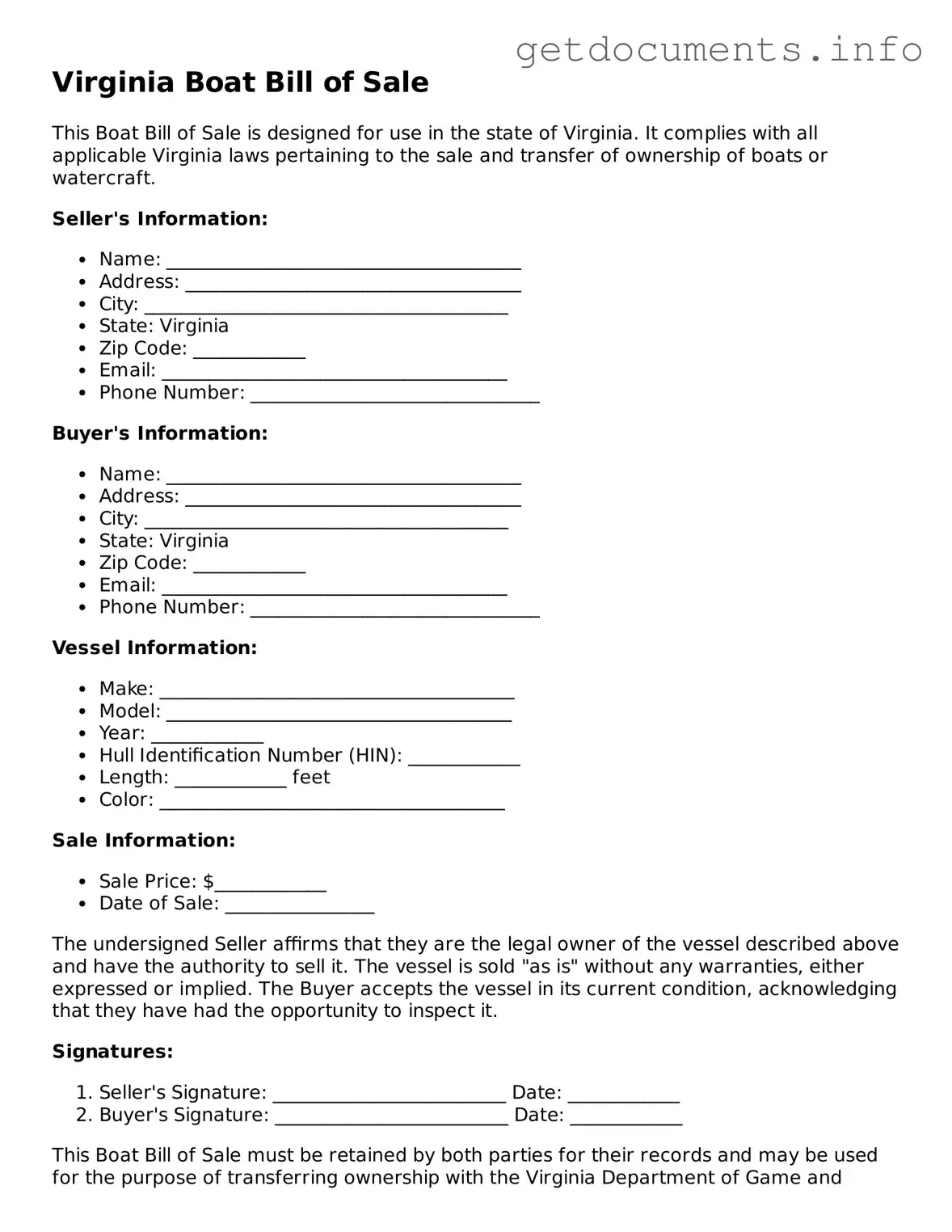Free Boat Bill of Sale Template for Virginia
The Virginia Boat Bill of Sale form is a legal document that records the transfer of ownership of a boat from one party to another. This form serves as proof of sale and includes essential details such as the buyer and seller's information, the boat's description, and the sale price. Completing this form is crucial for ensuring a smooth transition of ownership and for future registration purposes.
Ready to fill out the Virginia Boat Bill of Sale form? Click the button below to get started!
Access Boat Bill of Sale Editor

Free Boat Bill of Sale Template for Virginia
Access Boat Bill of Sale Editor
Got places to be? Complete the form fast
Fill out Boat Bill of Sale online and avoid printing or scanning.
Access Boat Bill of Sale Editor
or
⇩ PDF File
